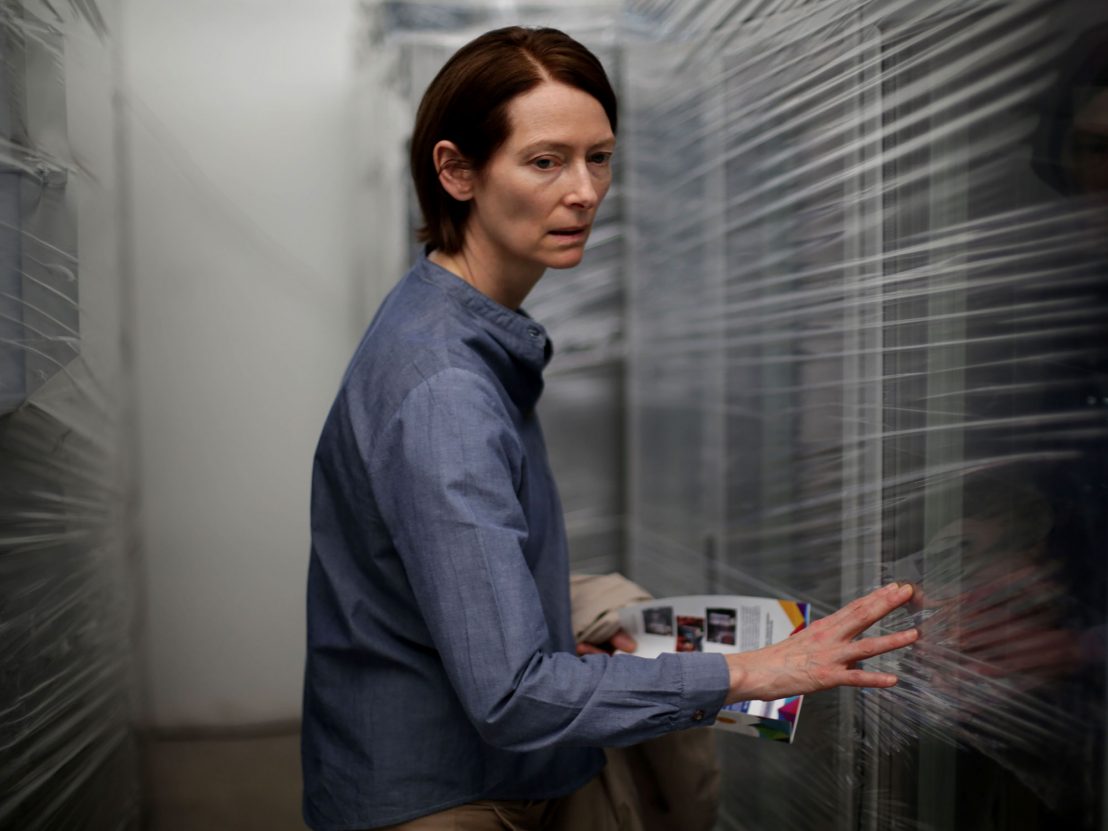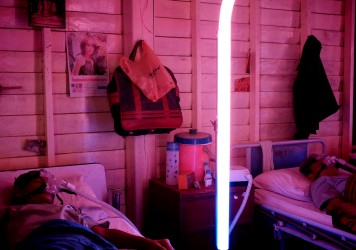
Tilda Swinton is extraordinary in a film by Apichatpong Weerasethakul which comprises of “pure vibes”.
Apichatpong Weerasethakul’s films are about the calm after the storm. In films like Uncle Boonmee Who Can Recall His Past Lives and Cemetery of Splendour, room tone and the rustle of the natural world seem to hum with the aftereffects of war, migration and other trauma – the border between present and past is porous, if you let yourself settle into the becalmed tone and sleepy mood of his scenes, and tune into the vibrations.
The idea of being attuned to the vibrations of the past, of other times and other lives, becomes literal in Memoria, the director’s first feature film made outside of his native Thailand, in this case in Colombia, a country with its own embedded history of violence and lush jungle biome. Like the best of his work, Memoria lulls you into its rhythms, gives you the sparse outlines of an intellectual framework, then hits you with the full weight of accumulated lyricism that must be pure cinema.
The film opens with Jessica (Tilda Swinton), a British woman in South America, possibly grieving and possibly starting an orchid farm, awoken in the night by a sound. It‘s like an explosion, not so different from the backfiring bus that sends a pedestrian diving to the ground in the middle of a crosswalk, but not quite. And how odd: no one else can hear the sound, though in her encounters at the university where she’s researching bacteria and fungus, and at the hospital where she’s visiting a patient in and out of consciousness, there are other traces of things below the surface. Soldiers guard the road into the mountains; a chance encounter with an archaeologist reveals a trove of bones still carrying the wounds of six thousand years prior; car alarms ring shrilly, agitated by an obscure stimulus.
The sound that plagues Jessica is like a concrete orb dropped into a metal cylinder full of seawater, as she explains to Hernan (Juan Pablo Urrego), a sound engineer helping her digitally engineer a recreation of her… memory? Hallucination? The scene, in both its slow, almost sleepy, meditative pace and attempt to aurally evoke an absence, seems a reflection on Apichatpong’s own filmmaking. They’re doing sound design, trying to conjure the noise that haunts her – and it’s surely significant that Hernan uses a stock library of audio effects that includes sounds like a wooden bat hitting a duvet over a human torso. This is a film shot in a South American country in turmoil, after all.
Swinton, who has been on the Riviera for basically the duration of Cannes, seeing more movies than any other celebrity, and must surely be in line to be the next native English speaker to be President of the Palme d’Or jury, is wonderful – physically careful and intellectually present – in Memoria as a woman carrying a secret sadness which is not merely her own.
Traveling out of the city, she meets another Hernan (Elkin Diaz), a peasant with a perfect memory and a gift for audio, a mystical ability to recall and connect to the vibrations of the past, to pick up a rock and feel a history going back, as in The Tree of Life, to the misty origins of life on Earth. Apichatpong’s already deliberate pacing, which is meditative, in the sense of consciously slowing your thoughts in order to better seek transcendence, reaches its powerfully resonant peak in extended long takes of a man lying on his back, barely breathing, not even dreaming (no thoughts, just vibes), and a deeply moving scene in which Diaz and Swinton clasp hands, and a rush of non-diegetic sound – nature, dialogue, memories – flow through the soundtrack and through her.
Apichatpong is on the record as saying that he doesn’t mind if you doze off at his movies; by now, I’ve been at the 2021 Cannes Film Festival for as long as I can remember, and I will raise my hand and say that I’m pretty sure that the part of this sequence where I heard my own parents’ voices was not part of the movie. But then again… wasn’t it?
Published 16 Jul 2021

By Vadim Rizov
Thai master Apichatpong Weerasethakul returns with a stunning meditation on a national and political crisis.

The 2020 release will be Joe’s widest North American run to date.

By Matt Thrift
The Thai master from the little town of Khon Kaen on the movies and directors that inspired him.